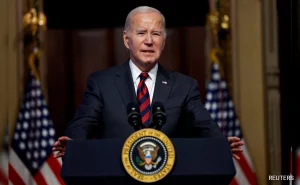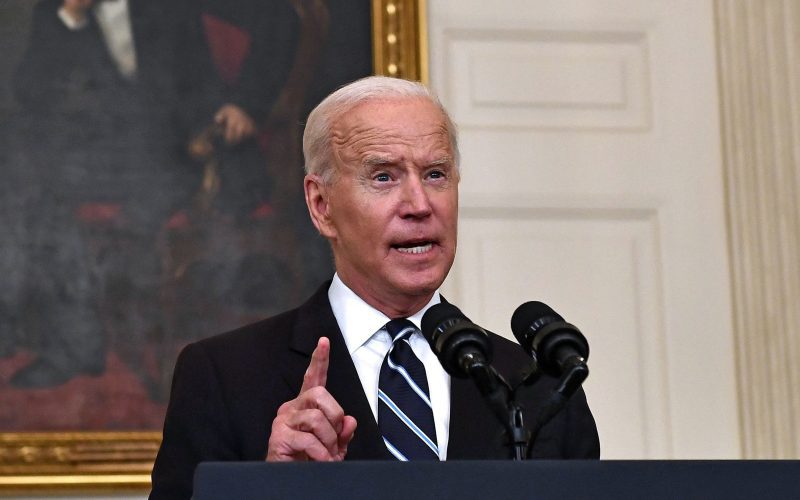President Joe Biden has significantly reduced former President Donald Trump’s lead in public perception regarding the handling of the U.S. economy. This shift is noteworthy as economic performance and policy handling are critical areas of voter concern. Understanding the dynamics behind this change involves examining both leaders’ economic policies, their impacts, and public opinion trends.
Overview of Economic Policies

Trump Administration’s Economic Policies
Donald Trump’s economic policies were largely characterized by deregulation, tax cuts, and a focus on bolstering American manufacturing. His administration passed the Tax Cuts and Jobs Act (TCJA) in 2017, which reduced the corporate tax rate from 35% to 21%. Trump also emphasized renegotiating trade deals to favor American interests, notably through the United States-Mexico-Canada Agreement (USMCA) and tariffs on Chinese imports. His tenure saw a strong stock market and low unemployment rates, although critics argue these benefits were unevenly distributed and led to increased deficits.
Biden Administration’s Economic Policies
Joe Biden’s approach has been markedly different, focusing on increased government spending to stimulate the economy, especially through the American Rescue Plan. This $1.9 trillion package aimed to provide relief from the economic fallout of the COVID-19 pandemic. Biden also emphasizes infrastructure investment, climate change initiatives, and social welfare enhancements. His proposed American Jobs Plan and American Families Plan outline significant investments in infrastructure, clean energy, and education. Biden’s policies aim to reduce income inequality and promote sustainable growth.
Economic Performance Under Trump vs. Biden
Trump’s Economic Performance
During Trump’s tenure, the economy initially showed robust performance with low unemployment and a booming stock market. However, the COVID-19 pandemic in 2020 caused significant economic disruption, leading to high unemployment and economic contraction. Despite these challenges, the administration’s response included substantial stimulus packages and efforts to quickly reopen the economy.
Biden’s Economic Performance
Biden inherited an economy in recovery from the pandemic-induced recession. His administration’s swift implementation of the American Rescue Plan provided direct relief to millions of Americans, contributing to a reduction in unemployment rates and economic stabilization. Biden’s focus on vaccination rollouts has also played a crucial role in reopening the economy. The stock market has remained strong, and there has been substantial job creation, although inflation and supply chain issues have emerged as new challenges.
Public Perception and Polling Data
Shift in Public Opinion
Polls have shown a notable shift in public perception of economic handling from Trump to Biden. While Trump maintained a strong lead in handling the economy during his presidency, recent polls indicate Biden has significantly narrowed this gap. Various factors contribute to this shift, including the effectiveness of COVID-19 relief measures, public approval of infrastructure and social spending plans, and changing economic conditions.
Key Factors Influencing Public Opinion
- COVID-19 Response: Biden’s handling of the pandemic and economic relief efforts have been well-received, helping to boost his ratings.
- Economic Recovery: Improvements in employment rates and economic stability have positively impacted public opinion.
- Inflation Concerns: Rising inflation rates have tempered some of the positive perceptions, highlighting the complexity of economic management.
Analysis and Comparative Table
To analyze the economic performance and public perception under Trump and Biden, we can use specific economic indicators and public opinion poll results.
Analysis Table: Key Economic Indicators
| Indicator | Trump Administration | Biden Administration |
|---|---|---|
| GDP Growth Rate | Strong pre-pandemic, negative during pandemic | Recovery phase, positive growth |
| Unemployment Rate | Record lows pre-pandemic, surged during pandemic | Steady decline, approaching pre-pandemic levels |
| Stock Market Performance | Significant gains | Continued growth |
| Federal Deficit | Increased significantly | High due to stimulus spending |
| Inflation Rate | Low, rising toward end of term | Elevated concerns |
| Consumer Confidence Index | High pre-pandemic, volatile during pandemic | Improving, but cautious due to inflation |
Comparative Table: Public Perception Polling Data
| Aspect | Trump Administration | Biden Administration |
|---|---|---|
| Economic Handling (Initial Lead) | Significant lead | Reduced gap significantly |
| COVID-19 Response | Criticized for delayed response | Praised for rapid vaccine rollout and relief efforts |
| Employment and Job Creation | Strong pre-pandemic, significant loss during pandemic | Strong recovery efforts, job growth |
| Infrastructure and Social Spending | Focused on tax cuts and deregulation | Focus on investment and social welfare |
| Trade Policies | Protectionist approach, tariffs | Multilateral, addressing global issues |
Conclusion
The narrowing gap Economy in public perception between Biden and Trump regarding economic management reflects a complex interplay of policy impacts, economic performance, and public sentiment. While Trump’s tenure saw initial economic strength, the pandemic posed significant challenges. Biden’s administration, focusing on recovery and investment, has garnered substantial public support despite new challenges like inflation. This evolving dynamic highlights the importance of adaptable and responsive economic policies in maintaining public confidence and achieving sustainable growth.










